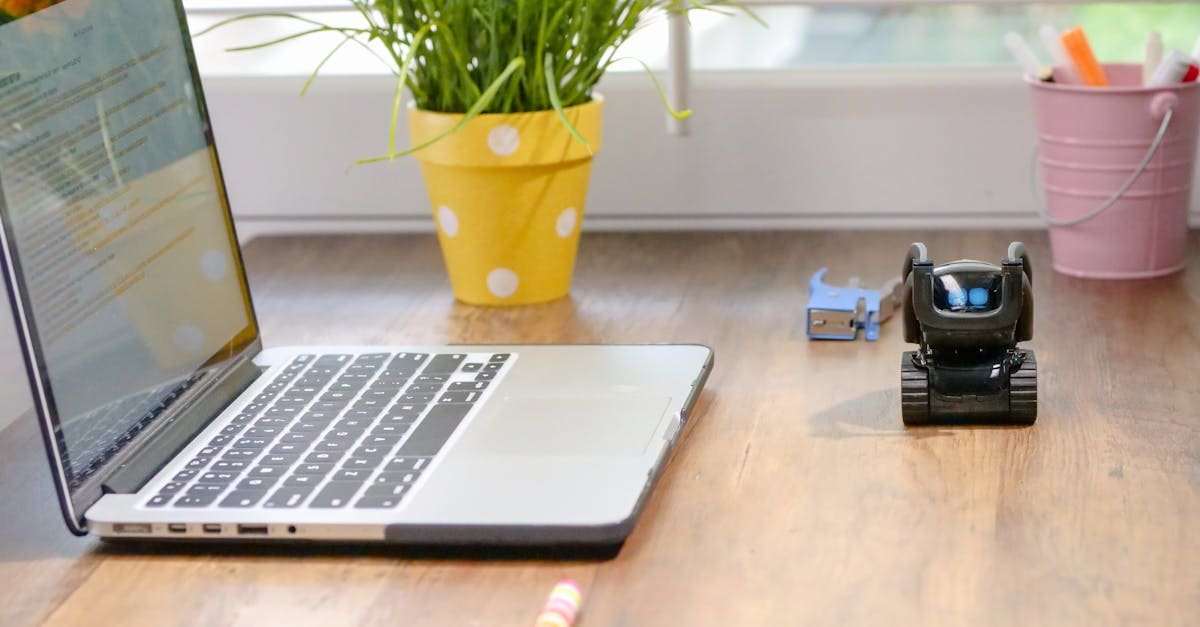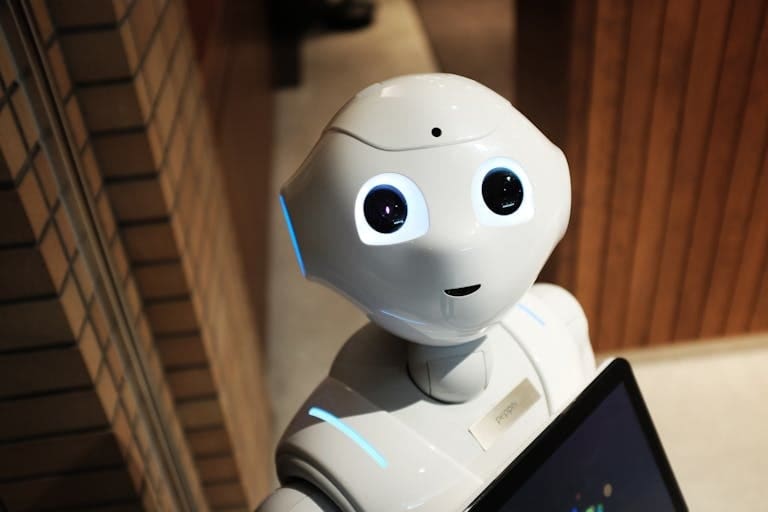5 Little-Known Ways to Elevate Your Understanding of AI Robotics in Space
“Exploration is really the essence of the human spirit.” This quote by Frank Borman, a notable astronaut, perfectly encapsulates my fascination with the universe and the technology that explores it. AI robotics in space is at the forefront of uncovering the mysteries of our cosmic neighborhood and beyond. These advanced robots are helping scientists make sense of the solar system’s evolution, offering unprecedented autonomy in missions. The vastness and complexity of space require innovative approaches, and AI offers promising solutions.
Delving into AI’s potential within space exploration isn’t just about marveling at technological advancements; it’s about making space exploration more sustainable and autonomous, enabling us to navigate complex terrains and analyze data at unprecedented scales. From satellites aiding in collision avoidance to space rovers adapting to unknown terrains, AI enhances our capabilities in significant ways. The role of AI-driven technology is paramount, allowing us to tackle challenges like communication lags and efficient data processing from deep space missions.
Curious about how these intelligent systems are revolutionizing space exploration? Dive into my article, where I’ll unravel five lesser-known insights that will elevate your understanding of this fascinating field. Join me on this journey through the universe with AI by your side.

Photo provided by Kindel Media on Pexels
In the article
- Understanding AI Robotics in Space
- Space Exploration Advancements
- AI-Enhanced Space Robotics
- Challenges and Innovations
Understanding AI Robotics in Space
The Role of AI in Space Technology
When I think about how much technology has advanced, I often find myself amazed by the role artificial intelligence (AI) plays, especially in space. I might wonder how it all works, and let me tell you, it is fascinating. AI is crucial for exploration, opening up opportunities and possibilities we never had before. With AI-driven space missions, I feel like we have taken a giant leap forward in our quest to understand the universe. AI, with its ability to process huge amounts of data quickly, makes it possible to explore new frontiers with a level of autonomy that was once just a dream.
Thinking about how AI enhances mission autonomy, I realize it acts like a diligent assistant that never tires, ensuring everything runs smoothly even when communication lags between Earth and space. I see that AI technologies in space robots allow greater autonomy during missions, which is crucial when I consider the vast distances involved. When I look at international space initiatives, I notice how AI aids in the development and execution of various space exploration robots. These robots not only enhance our exploration capabilities but also ensure efficiency and accuracy in every mission.
AI in Planetary Exploration
I find it incredible how AI helps rovers navigate autonomously, especially on complex terrains like Mars. These rovers, equipped with advanced AI, move around the planets, observing, and performing tasks without direct human control. When I think about AI space exploration, I’m struck by how these machines, which are millions of miles away, can make decisions and adapt to their surroundings with minimal intervention. Navigating such challenging environments requires precise autonomous navigation systems that only AI can provide, ensuring these rovers can complete their mission effectively.
Landing techniques have also become more sophisticated with AI. I’ve read how NASA’s Mars 2020 Mission uses AI for safe and successful landings. AI space exploration advancements include the ability to analyze data from sensors in real-time to predict and adjust landing paths, which reduces the chances of failure and increases mission success rates. It’s almost like having a knowledgeable guide who understands the complexities of space travel, enabling smooth and safe landings on distant planets.
AI-Driven Space Missions
In AI-driven space missions, I notice the importance of AI in supporting autonomous operations. It’s like having a team of smart assistants in the depths of space, managing various aspects of the mission, from entry to data collection. AI tools help astronauts aboard the International Space Station (ISS) by providing technical support, helping them focus on more critical tasks without worrying about minor details. These tools can perform tasks like monitoring systems and processing sensor data efficiently.
Handling the massive data generated during these missions is another area where AI shines. I see how AI processes massive data, helping scientists identify patterns that might have been missed with human analysis alone. The ability of AI robotics in space to analyze complex data sets quickly and accurately aids in the discovery of new knowledge and the enhancement of mission outcomes. Besides, with AI, tasks that once took a long time can now be completed faster, giving scientists more time to focus on strategic insights.

Photo provided by Pavel Danilyuk on Pexels
Space Exploration Advancements
When I think about how fast technology changes, I’m always amazed by how space robots evolve rapidly, adapting to our needs and challenges. With advancements in AI-enhanced space robotics, I have witnessed significant improvements in how these machines operate and perform. Robots are no longer just tools but are becoming integral members of space missions, making decisions and solving problems autonomously.
- Autonomous navigation systems allow rovers and robots to explore unseen terrains with ease.
- Telemetry analysis capabilities now provide more reliable and faster communication between space vehicles and Earth.
- Regular software upgrades ensure that robots remain updated with the latest technologies, improving mission success.
AI aids in satellite autonomy as well, ensuring they can operate independently and respond to changes in their environments. This autonomy is crucial when dealing with space debris and preventing potential collisions. Satellites equipped with AI can adjust their paths to avoid obstacles, ensuring their safety and longevity. These developments are not only advancing our knowledge but also contributing significantly to the sustainability and success of future missions.

Photo provided by Pavel Danilyuk on Pexels
AI-Enhanced Space Robotics
Future Prospects
Looking forward, I believe AI drives future sustainability in space exploration by making missions more efficient and reducing the need for human intervention. The prospect of AI-enhanced space robotics continues to grow as they become even more tailored to the unique challenges of space environment demonstrations. With AI, it’s like having a visionary planner that ensures every step is calculated and every resource is used optimally, making long-term space missions more feasible.
Applications in Space Robotics
AI improves robotic efficiency by allowing them to learn and adapt to new tasks. In my opinion, it’s akin to having a robot that learns on the go, constantly refining its skills to better suit mission objectives. AI space rover technology demonstrates this by improving how rovers analyze their surroundings and make quick decisions based on real-time data. This adaptability not only enhances mission efficiency but also reduces risks, ensuring that every mission is as successful as possible.

Photo provided by Kindel Media on Pexels
Challenges and Innovations
Despite the advancements, I often think about the challenges autonomous space robots face, especially with the complexities of space environments. It’s intriguing to see how innovation continues to overcome these hurdles, ensuring the continued growth and transformation of space exploration. The vastness of space presents unique challenges that require innovative solutions, constantly pushing the boundaries of what technology can achieve.
Overcoming AI Complexities
I understand that AI needs continuous development to meet the demands of space exploration. The ever-evolving nature of space missions requires AI systems to be flexible and adaptable. I see how AI helps tackle space debris problems, employing advanced algorithms to predict and avoid potential collisions, keeping our missions safe and on course. These autonomous systems are not just tools; they’re partners in navigating the complexities of space.
Moreover, AI advances mission success by ensuring that every task is completed efficiently and effectively. AI’s role in space includes processing complex data sets swiftly, offering insights that drive mission success. By enhancing the performance of space vehicles and systems, AI assists in achieving the strategic objectives of every mission, paving the way for more challenging explorations.
Innovative AI Space Rover Technology
When I think about the innovative AI space rover technology, I am amazed by how these advancements are shaping our future in space. These rovers are now more capable than ever, performing a variety of tasks with precision and intelligence. With capabilities like advanced autonomy and decision-making, AI space exploration robots are leading the charge in unraveling the mysteries of other planets. By continuously learning and adapting, they enhance the success and efficiency of each space mission, truly revolutionizing our approach to exploring the universe.
Embracing the Future of Space Exploration
I hope you now feel more informed about how advanced technologies are transforming space exploration. These technologies enable us to explore new frontiers, understand vast amounts of data, and enhance mission autonomy. With a clearer picture of how these systems work together, I’m sure you share my enthusiasm for the future of space technology.
To deepen your understanding, I suggest keeping an eye on developments from organizations like NASA and ESA. They are at the forefront of using cutting-edge technologies in their missions. You might even consider participating in webinars or events related to space exploration, where experts discuss groundbreaking projects and innovations.
Finally, why not share this knowledge with others? Discuss these exciting advancements with friends or colleagues who are interested in space. You might also consider following related discussions online to stay updated. By engaging with these topics, you contribute to a broader conversation about the possibilities that lie ahead in space exploration.







